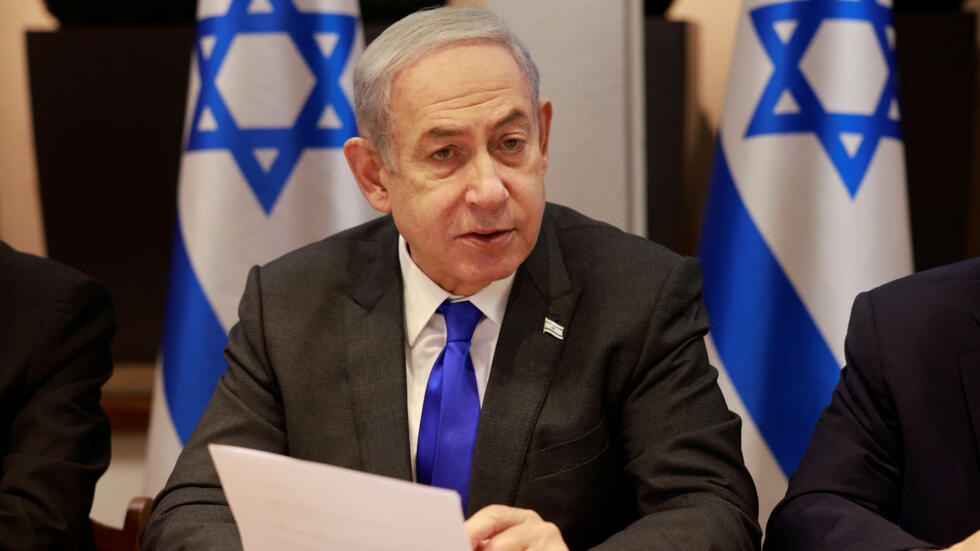
Israeli PM insists on Israeli control of key Gaza border strip as he pushes against rising pressure over captives.
Prime Minister Benjamin Netanyahu has pushed back against pressure for him to do more to secure the release of Israelis held captive in the Gaza Strip after 11 months of fighting.
Netanyahu is facing mass protests at home and pressure from United States President Joe Biden after Israeli forces at the weekend recovered the bodies of six captives, including 23-year-old American-Israeli Hersh Goldberg-Polin.
But on Monday he signalled he was in no mood to compromise.
He insisted Israeli control of the Philadelphi Corridor, a narrow band along Gaza’s border with Egypt where Israel contends Hamas smuggles weapons into Gaza, was a necessary part of any ceasefire agreement.
Egypt and Hamas deny such activity and the Palestinian group has rejected any Israeli presence in the area.
Netanyahu called the corridor vital to ensuring Hamas, which controls Gaza, was not able to use the tunnels to rearm.
“This is the oxygen of Hamas,” he said, adding: “No one is more committed to freeing the hostages than me … No one will preach to me on this issue.”
The key Israeli ally appears to be growing weary of his intransigence.
Speaking to reporters at the White House on Monday, Biden said he did not think Netanyahu was doing enough to reach a deal, and indicated that the US was planning to present a final proposal to both sides this week.
“We’re very close to that,” Biden told reporters.
“Hope springs eternal,” he added when asked if the latest effort would be successful.
Biden said later in the evening that he plans to talk to Netanyahu “eventually”, but did not specify a clear timeline when asked. Biden and Netanyahu have spoken several times since Israel began its war in Gaza nearly a year ago.
Senior Hamas official Sami Abu Zuhri said Biden’s criticism of Netanyahu was “American recognition that Netanyahu was responsible for undermining efforts to reach a deal”.
He said the group would respond positively to a proposal that could secure a ceasefire and full Israeli withdrawal from the Palestinian enclave.
Israeli protesters took to the streets on Monday for a second day, and the largest trade union launched a general strike to press the government to reach a deal to return the captives.
Months of stop-start negotiations mediated by the US, Qatar and Egypt have so far failed to reach an accord on a Gaza proposal laid out by Biden in May.
The latest bloodshed in the decades-old Israeli-Palestinian conflict was triggered on October 7 when Hamas fighters launched a surprise attack on Israel, killing 1,139 people and taking about 250 captive, according to Israel.
More than 40,000 Palestinians have been killed since Israel began its assault on the Hamas-governed territory, while nearly the entire population of 2.3 million has been displaced.

